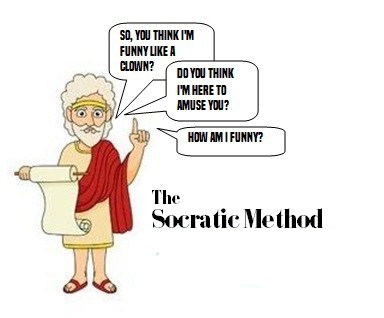Using the Socratic Method to Teach Social-Emotional Learning
Developing critical thought and questioning abilities in children is an excellent way for students to understand more about their habits, feelings, and behaviors. Often, educators tend to focus on the outwardly expressed actions of the learners rather than helping children to effectively understand the root of their emotions.
I’ll explain how the “Socratic Method” which is based on a questioning technique, can encourage learners to discuss and examine their ideas, emotions, and opinions in this blog post.
The Socratic Method is derived from the great philosopher Socrates himself, and consists a series of questions being posed and then answered to stimulate critical thinking and to draw out ideas. Thus, the Socratic method is a unique tool for learning as it allows for students to engage in active and critical thinking and teaches students how to examine a notion, builds morality, values, and character.
Here are some starter-questions that are designed to help guide and promote critical thinking and discovery about feelings and behaviors.
● Ask your students: Is failure a bad thing or a good thing?
● What is your opinion?
● What information would you use to support your point of view?
● Can you elaborate/expand on the reason?
● What changes would you have made to it?
● Can you propose an alternative to …? What is the significance of…?
● Why was it better that…?
● Can you elaborate/expand on the reason?
● What could be done to minimize/maximize failure…?
● How would you compare the failure to …? Why do you think…?
When educators take a moment to teach their students the core skills of critical thinking and reflection, it builds capacity for self-discovery. Consistently challenging students to think more deeply and critically will build respect for the thought process and implicitly promotes learners to notice and think through problems and possibilities.

